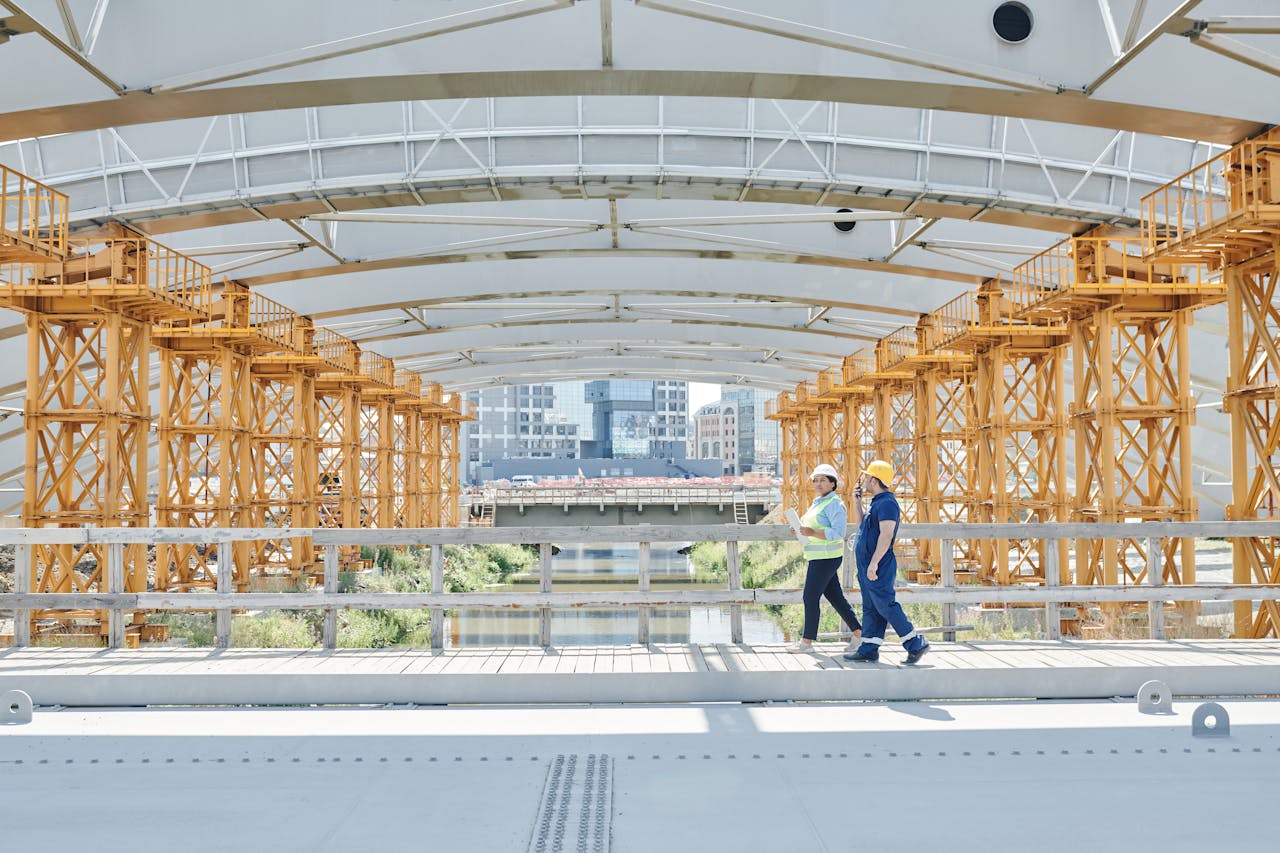Sustainable practices in industrial construction are more important now than ever before. As massive projects sprout, particularly in regions like Surrey, Mississauga, and Ontario, a shift toward eco-friendly methods not only serves the environment but also creates long-term benefits for the industry itself. Embracing sustainable practices protects our planet and ensures that future construction will continue to thrive in a changing world.
Drawing from Canada’s vast resources and innovative spirit, it’s possible to build green without compromising quality or effectiveness. Sustainable practices aren’t just a trend; they’re a necessity for modern construction. Reducing the carbon footprint and using local, renewable resources can make a significant impact. As the world moves towards greener initiatives, it offers a perfect opportunity for businesses and communities in these regions to lead by example and set a precedent in environmentally sound construction practices.
Implementing Green Building Materials
One of the first steps in sustainable construction is selecting environmentally friendly materials. This change is a fundamental part of modern construction efforts. By using materials that cause less harm to the environment, like recycled steel or bamboo, the construction industry can significantly reduce its environmental footprint.
– Recycled Steel: Not only is it strong and durable, but recycled steel is also a smart choice from an ecological standpoint. Its production uses less energy compared to new steel, and it reduces waste, thereby aligning with sustainable objectives.
– Bamboo: Known for its rapid growth and strength, bamboo offers an alternative to traditional wood. By using a resource that renews quickly, the industry can lessen deforestation pressure.
In addition to these materials, focusing on low-VOC (volatile organic compounds) products ensures that indoor environments remain healthier, with less off-gassing and pollutants. Sourcing these materials within Canada not only supports the local economy but also reduces emissions associated with long-distance transportation.
With a range of sustainable materials readily available, construction firms can make eco-friendly choices without sacrificing quality or functionality. By working with the environment, each project contributes to a healthier world for future generations.
Energy Efficiency in Construction Processes
Energy efficiency plays a huge role in minimising the environmental impact of industrial construction. Using energy-efficient equipment and machinery not only conserves energy but also reduces operational costs. For instance, opting for machines with an Energy Star rating can cut down the energy consumed.
When planning a construction site, thoughtful design can also lead to energy savings. By considering factors such as the orientation of structures and natural lighting, the need for artificial lighting and heating can be reduced.
Incorporating renewable energy sources like solar panels further reduces reliance on fossil fuels. Picture a site in Ontario using solar panels to supplement its power needs during sunny months. This realistic solution shows how projects can integrate sustainable practices specific to the local climate.
Waste Management and Recycling Strategies
Effective waste management is pivotal in promoting sustainability in construction. The goal here is to minimise the waste sent to landfills. Implementing recycling programs on construction sites helps reuse materials, such as wood, concrete, and metal. This not only saves costs but also lessens the environmental impact.
Another strategy is choosing modular constructions, which means components are prefabricated and assembled onsite. This method reduces on-location waste significantly. Moreover, by classifying and sorting waste materials, the industry can maximise the potential for recycling. These methods demonstrate that, with a little thought and planning, construction projects can significantly reduce their waste output.
Water Usage and Conservation
Conserving water in industrial construction is important for sustainability. Identifying high water usage areas and implementing efficient systems can make a big impact. For example, using low-flow fixtures or recycling water onsite helps cut down consumption. There’s also room for innovation in how water is used for tasks like mixing concrete, where technology can ensure no water is wasted.
One example of water conservation in action is using rainwater harvesting systems. During the rainy seasons in Canada, collecting and storing rainwater can provide a supplemental water source for construction processes. By doing so, we move towards a more sustainable future while respecting natural resources.
Encouraging Sustainable Transport and Logistics
Transport and logistics are other areas where sustainability can shine in construction. By using eco-friendly transport options, like electric vehicles for on-site movements, the industry cuts down emissions. Planning logistics smartly ensures that materials are delivered in the most efficient way possible, reducing fuel consumption and costs.
Sourcing materials locally offers several benefits. It supports the local economy and reduces the carbon footprint associated with transporting materials over long distances. The workforce also benefits from shorter commutes, which means less travel pollution. Embracing sustainable logistics means considering every step in the supply chain, ensuring each has minimal environmental impact.
Building a Better Future with Sustainable Practices
Incorporating sustainable practices in industrial construction presents many advantages. It leads to healthier communities, savings, and a reduced environmental footprint. As projects in places like Surrey, Mississauga, and Ontario set the stage for greener construction, the shift towards sustainability reflects a broader commitment to responsible building.
Sustainable construction is no longer just a perk; it’s becoming a standard. As industry professionals continue to innovate and improve, embracing these practices ensures that construction will meet today’s needs and safeguard resources and opportunities for future generations. This approach integrates respect for the environment with the drive to create efficient and productive construction solutions. Each small change contributes to a larger impact, gradually paving the way to a sustainable tomorrow.
Sustainability in the construction industry is moving from a nice-to-have to a necessity. Incorporating practices like energy efficiency and waste management not only helps the planet but can also improve project outcomes. Industra Construction Corp. is dedicated to spearheading these initiatives for a greener future. To learn more about sustainable approaches in industrial construction, explore how our team can help you bring your next project to life with environmentally responsible solutions.

















